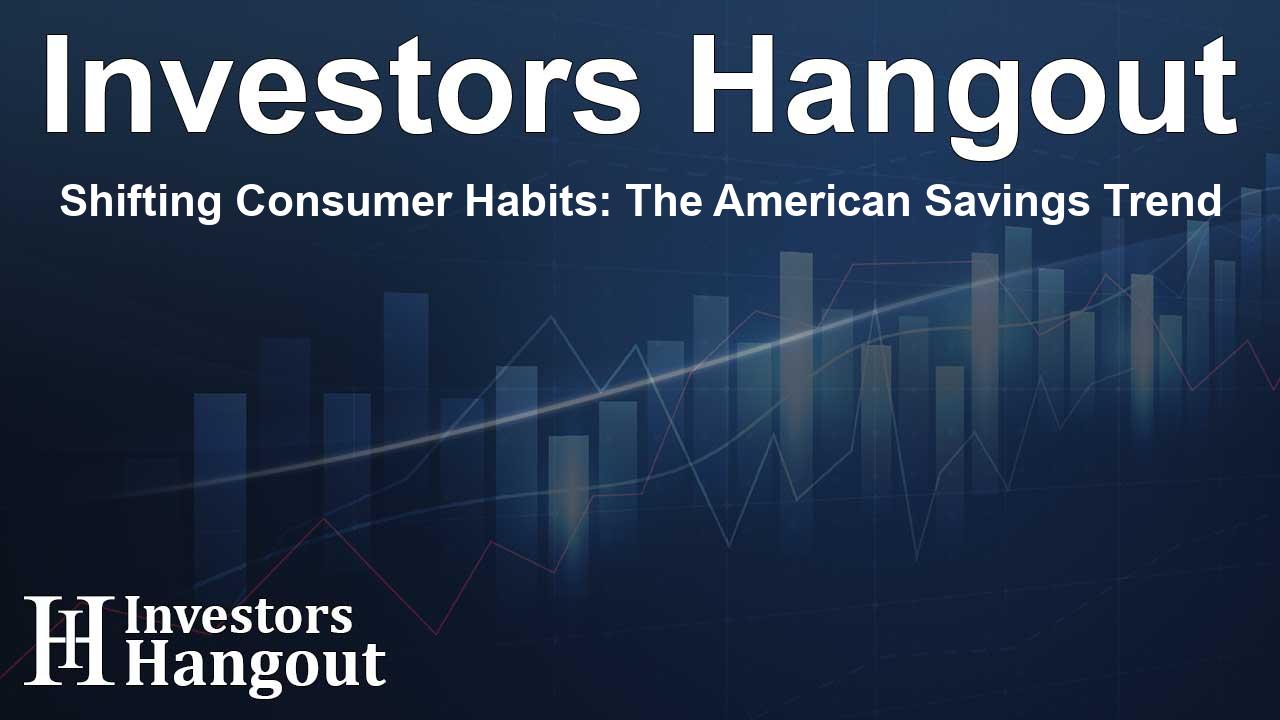Shifting Consumer Habits: The American Savings Trend

Shifting Consumer Habits: The American Savings Trend
The latest trends indicate that Americans are increasingly leaning toward saving rather than spending. This shift may suggest a return to the more conservative, pre-pandemic financial behaviors. Reports show that the Consumer Health Indexes, conducted by Bain & Company and Dynata, highlight a noticeable uptrend in the intent to save among consumers.
Recent analysis reveals that the consumer outlook gauge has experienced a decline for the third consecutive month, dropping significantly. This downward trajectory raises concerns about the viability of the consumer market. The findings further suggest the possibility that consumers are pulling back from the elevated spending patterns that became common post-COVID, opting instead for a more cautious approach to their finances.
An encouraging aspect from the data is that the intentions to save have seen a remarkable rise over the past four months. This is a reversal from the past year's trend when there was a notable lack of interest in saving. This renewed focus on saving could potentially impact consumption growth as Americans reassess their financial priorities.
Understanding the Implications of Consumer Sentiment
As consumers adjust their spending habits, it becomes crucial for businesses to monitor these changes closely. The rebound in the savings intent suggests consumers are prioritizing financial security over discretionary spending. Bain & Company's analysis warns retailers to be vigilant in tracking their sales trends as this shift might signal a return to lower spending levels.
Brian Stobie, a senior director with Bain & Company, highlights that the emerging consumer mindset indicates a reversion to traditional financial norms. The gradual decline in spending levels, especially among higher earners, could challenge companies that have been relying on the spending boom from the pandemic recovery. Businesses must adapt to this new reality to ensure their strategies align with shifting consumer priorities.
Consumer Behavior Trends Among High-Income Groups
Interestingly, while the overall consumer outlook has deteriorated, the intentions to spend among upper-income earners are showing signs of recovery. After a significant drop in January, spending intentions for this group have bounced back, returning to neutral levels—though still lower than the previous year's peak.
Despite this recovery, the sentiment among upper-income consumers remains fragile. The decreased outlook reading indicates a cautious approach to spending. The latest data suggests that while spending pressures have eased, the long-term outlook is still clouded, highlighting the need for retailers to stay agile as consumer sentiment fluctuates.
The Bigger Picture in Consumer Data
The Consumer Health Indexes are pivotal for understanding the broader implications of consumer behavior. They reveal trends that can inform strategies across various sectors. Companies need to pay attention to these metrics, which not only reflect current consumer sentiment but also forecast future purchasing behaviors.
As businesses pivot to accommodate evolving consumer attitudes, the emphasis will likely shift towards more sustainable and responsible spending. Retailers that can demonstrate adaptability and responsiveness to these changes will be well-positioned for success in a changing market landscape.
Strategies for Businesses Amid Changing Economics
To navigate through these uncertain times, businesses should develop strategies that prioritize customer engagement and satisfaction. Addressing the underlying concerns of consumers can build lasting trust, even as financial behaviors shift. Companies might consider offering new savings incentives or loyalty programs that align with the current savings intent.
Moreover, deepening customer relationships and fostering open communication can help brands understand changing consumer needs and preferences. As the economic environment continues to evolve, the companies that remain attuned to their customers will thrive.
Frequently Asked Questions
What recent trends are emerging in American consumer behavior?
Americans are showing a heightened intent to save, suggesting a shift back to pre-pandemic spending habits characterized by lower spending levels.
How have consumer outlook measures changed recently?
The consumer outlook gauge has declined for three consecutive months, indicating a more cautious spending approach among consumers.
What implications do these changes have for retailers?
Retailers may need to adjust their expectations and strategies, as a shift back to lower spending levels could affect same-store sales and overall demand.
How are upper-income consumers responding to the current economic climate?
Upper-income consumers are showing some recovery in spending intentions after a drop, but overall outlook readings have continued to decline, indicating caution.
What should businesses focus on to adapt to these changes?
Businesses should prioritize understanding consumer sentiments, adapting strategies to engage customers effectively, and offering incentives that cater to the current saving trends.
About The Author
Contact Kelly Martin privately here. Or send an email with ATTN: Kelly Martin as the subject to contact@investorshangout.com.
About Investors Hangout
Investors Hangout is a leading online stock forum for financial discussion and learning, offering a wide range of free tools and resources. It draws in traders of all levels, who exchange market knowledge, investigate trading tactics, and keep an eye on industry developments in real time. Featuring financial articles, stock message boards, quotes, charts, company profiles, and live news updates. Through cooperative learning and a wealth of informational resources, it helps users from novices creating their first portfolios to experts honing their techniques. Join Investors Hangout today: https://investorshangout.com/
The content of this article is based on factual, publicly available information and does not represent legal, financial, or investment advice. Investors Hangout does not offer financial advice, and the author is not a licensed financial advisor. Consult a qualified advisor before making any financial or investment decisions based on this article. This article should not be considered advice to purchase, sell, or hold any securities or other investments. If any of the material provided here is inaccurate, please contact us for corrections.
